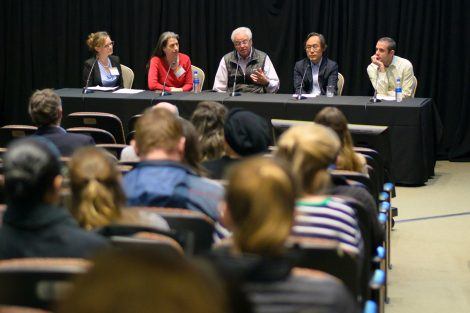May 24, 2019 – The microbiome—the collection of trillions of microorganisms throughout the body that plays an important role in numerous diseases—represents a promising frontier in the world of public health. Although it’s a relatively new field of research, understanding how the microbiome functions, and how it can be modified, could further our understanding of everything from nutrition and allergies to colon cancer and amyotrophic lateral sclerosis.
On May 15-16, dozens of experts representing a wide variety of fields gathered at the Joseph B. Martin Center for the inaugural symposium of the Harvard Chan Center for the Microbiome in Public Health (HCMPH). Launched in 2018, HCMPH was established to expand our understanding of the microbiome to improve population health through basic research, translation, policy, education, and outreach.
Over the course of the two days, researchers presented data, shared challenges they’ve encountered, and discussed new research efforts they’re undertaking, including the MICRObiome Among Nurses (MICRO-N) study. The study, which will build on the success of the long-running Nurses’ Health Study II, will recruit 25,000 nurses and focus on the connection between diet and lifestyle, microbiome composition, and the risk of developing chronic diseases such as cancer, diabetes, and heart disease.
Other panels at the event explored how lifestyle interventions such as diet and exercise affect the microbiome and new methods for microbiome data analysis.
“One of the things I’ve been most astounded by in this burgeoning field is it presents an opportunity to approach public health research in a much more transdisciplinary way than we have in the past,” Amanda Spickard, associate dean for research strategy and external affairs at Harvard Chan School, said during a panel discussion focused on the intersection of public health and the microbiome. “There is a really meaningful set of opportunities that microbiome research presents that allows us to bring people together to ask questions in new ways.”
Photo: Shaina Andelman
